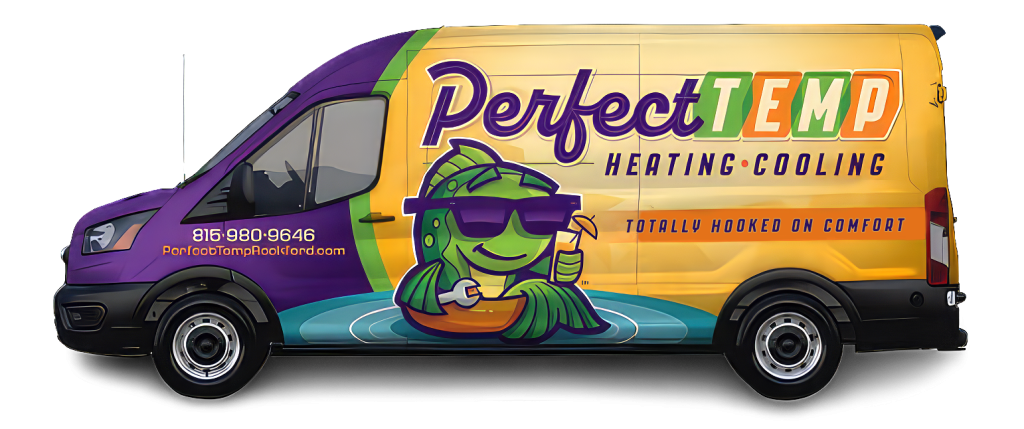When it comes to keeping our homes cozy during those chilly months, furnaces play a starring role. But did you know there’s more than one type of furnace out there? Types of furnaces vary widely, each with its own set of pros and cons. Whether you’re building a new home or looking to upgrade your current heating system, understanding the different types of furnaces can help you make an informed decision that will keep you warm without breaking the bank.
Let’s dive into the world of furnaces and explore the options available to homeowners today. From traditional gas furnaces to more modern electric models, we’ll cover the ins and outs of each type, helping you figure out which one might be the best fit for your home and budget.
Natural Gas Furnaces: The Popular Choice
When it comes to heating homes across North America, natural gas furnaces take the cake. Nearly half the country relies on this type of furnace to keep warm during those frosty winter months. But what makes them so popular?
For starters, natural gas furnaces are known for their efficiency. Modern models can reach up to 98% efficiency, meaning almost all the fuel they use gets converted into heat for your home. This high efficiency translates to lower energy bills, which is music to any homeowner’s ears.
Another big plus? Natural gas furnaces heat up quickly. When you activate the furnace by adjusting your thermostat, you’ll feel the warmth spreading through your home in no time.
The Downside of Natural Gas
However, it’s not all sunshine and roses. Natural gas furnaces do have a few drawbacks. The biggest concern is safety. These furnaces produce carbon monoxide, a colorless, odorless gas that can be deadly if it leaks into your home. Regular maintenance and carbon monoxide detectors are must-haves if you opt for a gas furnace.
Additionally, while natural gas is typically cheaper than electricity, the initial cost of a gas furnace can be higher. In fact, they can cost up to 25% more to purchase compared to other types of furnaces.
Oil Furnaces: The Old Reliable
Oil furnaces might seem like a blast from the past, but they’re still kicking around, especially in areas where natural gas isn’t readily available. These furnaces are particularly popular in the northeastern United States.
One of the big advantages of oil furnaces is their efficiency. They’re typically between 80-90% efficient, which is pretty impressive. They also tend to produce more heat per BTU than their gas counterparts, making them great for those really cold climates.
The Oil Furnace Conundrum
But here’s the rub: oil prices can be a wild ride. Oil prices are highly volatile these days due to shortages, which means your heating costs can fluctuate dramatically from year to year. Plus, you’ll need to have an oil tank on your property and remember to schedule regular deliveries.
Maintenance is another consideration. Oil furnaces tend to need more frequent cleaning and filter changes compared to other types of furnaces. But with proper care, they can last up to 30 years, which is nothing to sneeze at.
Electric Furnaces: The Budget-Friendly Option
If you’re looking for a furnace that’s easy on the wallet upfront, an electric furnace might be right up your alley. These furnaces are typically the cheapest to purchase and install. They’re also a great option for homes without access to natural gas lines.
Electric furnaces have some other perks too. They’re generally quieter than their gas or oil counterparts and don’t produce any emissions in your home. This means no worries about carbon monoxide leaks.
The Long-Term Cost of Electric Heat
However, the low upfront cost of electric furnaces can be deceiving. While they’re cheap to buy, they can be expensive to run. Electricity rates are often higher than natural gas rates, which means your monthly heating bills could be significantly higher with an electric furnace.
On the flip side, electric furnaces tend to last longer than other types. With proper maintenance, they can keep chugging along for 20-30 years. Plus, they’re typically easier to maintain since they have fewer moving parts.
Propane Furnaces: The Versatile Alternative
Propane furnaces are a great option for homes that don’t have access to natural gas lines. They work similarly to natural gas furnaces but use propane as fuel instead. This type of furnace is particularly popular in rural areas.
One of the big advantages of propane furnaces is their efficiency. They can reach efficiency ratings of up to 98%, putting them on par with the best natural gas furnaces. They also heat up quickly, providing fast warmth on those cold winter days.
The Propane Predicament
The main drawback of propane furnaces is the fuel storage. You’ll need to have a propane tank on your property, which needs to be refilled periodically. This can be a hassle, especially if you live in an area prone to severe weather that might delay deliveries.
Propane prices can also fluctuate, sometimes dramatically. This can make it difficult to predict your heating costs from year to year. However, many propane suppliers offer locked-in rates or budget plans to help manage costs.
Modulating Furnaces: The High-Tech Option
If you’re looking for the Cadillac of furnaces, a modulating furnace might be what you’re after. These furnaces represent the cutting edge of home heating technology. They can adjust their flame in small increments, allowing for incredibly precise temperature control.
Modulating furnaces are the most efficient type of furnace available. They can reach efficiency ratings of up to 98-99%, meaning almost all the fuel they use gets converted into heat for your home. This high efficiency can lead to significant savings on your energy bills over time.
The Price of Precision
The downside? Modulating furnaces come with a hefty price tag. They’re typically the most expensive type of furnace to purchase and install. However, for homeowners in areas with unpredictable cold weather, like Canada, the precise temperature control and high efficiency can make the investment worthwhile.
It’s also worth noting that modulating furnaces are complex machines. While this allows for their superior performance, it also means they may require more specialized maintenance and repairs.
Choosing the Right Furnace for Your Home
Selecting the right type of furnace for your home isn’t a one-size-fits-all proposition. It depends on a variety of factors, including your local climate, the size of your home, your budget, and the availability of different fuel types in your area.
Here’s a quick comparison table to help you weigh your options:
| Furnace Type | Efficiency | Initial Cost | Operating Cost | Lifespan |
|---|---|---|---|---|
| Natural Gas | Up to 98% | High | Low | 15-20 years |
| Oil | 80-90% | Medium | Variable | 15-25 years |
| Electric | 100% | Low | High | 20-30 years |
| Propane | Up to 98% | Medium | Variable | 15-20 years |
| Modulating | 98-99% | Very High | Very Low | 20-30 years |
Remember, while efficiency ratings and initial costs are important, they’re not the only factors to consider. The reliability of the brand is also crucial. A Consumer Reports study found that Trane and American Standard were among the most reliable furnace brands, so these might be worth considering as you shop around.
The Importance of Professional Installation and Maintenance
No matter which type of furnace you choose, proper installation and regular maintenance are key to ensuring its efficiency and longevity. A poorly installed furnace won’t operate at peak efficiency, costing you more in energy bills and potentially leading to premature breakdowns.
Regular maintenance is equally important. Annual tune-ups can help catch small issues before they become big problems, ensure your furnace is operating at peak efficiency, and even extend its lifespan. Plus, many warranties require regular professional maintenance to remain valid.
For expert advice on choosing and maintaining your furnace, consider consulting with a professional HVAC technician.
FAQs about Types of furnaces
What are the three types of furnaces?
The three main types of furnaces are gas furnaces, oil furnaces, and electric furnaces. Each type uses a different fuel source to generate heat for your home.
What type of furnace is most efficient?
Modulating furnaces are generally considered the most efficient type of furnace, with efficiency ratings up to 98-99%. However, among more common types, high-efficiency gas furnaces can reach up to 98% efficiency.
What is the most popular type of furnace?
Natural gas furnaces are the most popular type of furnace in North America. They’re widely available, relatively efficient, and typically have lower operating costs compared to other types.
What are the 4 types of forced air furnaces?
The four types of forced air furnaces are single-stage, two-stage, modulating, and variable-speed furnaces. These categories refer to how the furnace regulates its heat output and blower speed to maintain your desired temperature.
Conclusion
Navigating the world of furnaces can feel overwhelming, but understanding the different types of furnaces is the first step towards making an informed decision for your home. Whether you opt for a traditional natural gas furnace, a reliable oil furnace, a budget-friendly electric model, or splurge on a high-tech modulating furnace, the key is to consider your specific needs, budget, and local climate.
Remember, the best furnace for your neighbor might not be the best for you. Take the time to research, consult with professionals, and consider factors beyond just the initial cost. With the right furnace, you’ll not only stay warm and cozy during those cold months but also potentially save on energy bills in the long run. So, as you contemplate your options in types of furnaces, think about what matters most to you – efficiency, cost, longevity, or environmental impact. Your perfect furnace is out there, ready to keep you warm for years to come.
Contact us today for more information or to schedule a free consultation.


